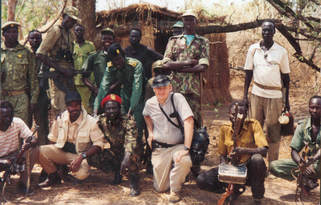 What Have You Learned? After my first Mission to Mozambique, April 1982, my pastor, Rev. Doc Watson, challenged me: “Many Missionaries tell of what they have done. I would like to know what you have learned.” Ask Many Questions That challenge has continued to inspire me to look deeper, to discover what is God saying, in and through the many obstacles, frustrations, conflicts and through every country I have had the privilege of ministering in. It has also led me to ask many questions. I have filled up many notebooks interviewing Missionaries, pastors, refugees, chaplains, Evangelists, teachers, survivors of atrocities, prisoners, soldiers, policemen, even several heads of state. Always Ask Why The words of my first high school history teacher, Mr Reese-Davies, who was also a Member of Parliament in Rhodesia, has also frequently echoed in my mind: “Always ask why? What is the context? Do not accept the official narrative. Beware the victors’ version. War-time propaganda all too easily morphs into peace-time textbooks.” Learn to think critically. Think outside the box. Dig deeper. You will not find the truth by accepting the standard narrative parroted in the news media and on Hollywood’s screens. Next Time Take Pictures Another good piece of advice was received after one of my early Missions to Mozambique. After a Missions Report Back at a church in the Transvaal, one of the people mentioned to me at the door: “What you have to say is hard to believe. Next time take pictures.” That was great advice. I had not taken a camera, or pictures, on my first Mission to Mozambique. I was so focused on the work to be done. But what he said made sense. Why should people believe what we are saying? How much more convincing to show them photographic proof. It is one thing to tell people that churches are being destroyed by communists, or Jihadists. It is another thing to document it with photographic evidence and eye-witness testimonies. If at all possible, with dates, names and places. What Hope Do You Offer? On my first speaking tour to the United States, one man observed: “You exposed the problem and the threat of communism very well. But what hope do you offer?” That was a great challenge. Never again would I present any problem without concluding with the solution. With the “Now what?”, “What can I do?”, “What difference can I make?” Positive, practical and constructive suggestions and projects are needed to move people beyond information to inspiration and involvement. Not only educate, but enlist people to make a difference. We must motivate them and mobilise them to action. What Can I Do? Regularly when people have asked: “What can we do?” I would respond with five “I’s”: Information, Intercession, Involvement, Implementation and Investment. “My people are destroyed for lack of knowledge.” We need to be informed. Jesus told us that we should always pray and not give up (Luke 18:1-2). We need to be involved. As Nehemiah mobilised the people of Jerusalem to build the walls and to defend the city, there is always something each one of us can do, practically and positively. There are strategies to implement and there are projects we can invest our time, talents and treasure in. What Have You Done for Christ? At the first Evangelistic Rally I attended, on the night of my conversion, Sunday, 3 April 1977, the speaker, Rev. Rex Matthie, asked: “What have you done for Christ?” Christ’s Great Commission must be our supreme ambition. His last command must be our first concern. Know God and make Him known. Priorities, Planning and Preparation
The main thing is to keep the main thing the main thing. We need focus and energy. We need to aim for maximum impact. We need to work strategically. First do research. Who is doing what? Where? Do Not Try to Reinvent the Wheel There is no need to re-invent the wheel. If a good resource already exists, use it. From the first Mission, God guided me to network and to learn from those who had already been in the field and to use those resources already available. From the first days of Frontline Fellowship, World Missionary Press Gospel booklets became a vital part of every outreach. WMP produces 50-page Gospel booklets in over 300 languages. I have had the privilege of distributing over a million of their Gospel booklets in nearly 100 languages, across 36 countries. Reaching and Teaching the Illiterate Gospel Recordings/Bible Media have provided us with many thousands of Gospel records, card talks, Gospel messengers, tapes, flip charts and audio Bibles in more than 100 languages. We have used these to reach the illiterate in market places, beer halls, prisons, hospitals, military bases, refugee camps, on the streets and hut to hut. Similarly the Jesus film in over 100 languages, has enabled us to reach many tens-of-thousands of people with the core Kerygmaof the Gospel in their language. Evangelism Explosion, Way of the Master and Answers in Genesis have provided invaluable resources which we have integrated into our Great Commission Camps, Courses and Seminars. Pray Without Ceasing Francis Grim, the Founder of the first Mission that I had the privilege of serving, Hospital Christian Fellowship, taught me how to pray intensively, in hours of prayer every morning, days of prayer and nights of prayer at HCF headquarters in Kempton Park. He taught me to pray through Operation World, country by country, in strategic prayer focus. Live by Faith Francis Grim also taught me what it means to live by Faith. “The will of God will never lead you where the grace of God cannot keep you.”, “God's servant is God's responsibility.”, “Where God guides, He provides.” Francis Grim also said that a Missionary’s Job Description is to: “Comfort the afflicted. Afflict the comfortable!” Run a Rescue Shop within a Yard of Hell Some other great quotes from Missionaries which inspired me and guided my ministry over the last four decades, have included: “Some like to live within the sound of church or chapel bell – I want to run a rescue shop within a yard of Hell!” C.T. Studd. Make Your Life Count for Eternity “You only have one life, it will soon be past. Only what is done for Christ will last.” C.T. Studd. Redeem the Time We need to redeem the time. Always carry a Bible, or New Testament, on you. Know the Word of God and the God of the Word. Always have a notebook and pen. The weakest ink is stronger than the strongest memory. Write it down! Make check lists. Regularly re-evaluate your life, goals and habits. Exercise control over your time so that you can focus on what is most important. Eliminate time wasters like TV and newspapers. Be Bold and Brave for God Seize the opportunities. Be brave and bold for God. Do not remain seated when the time comes for you to stand up for God. Do not hesitate when the time comes to step out in faith. Do not remain silent when you need to speak up, expose evil and proclaim Biblical truth. True love is measured by sacrifice. Six C’s Some of the lessons learned and major themes of my life, over the last 40 years, include: Conversion to Christ, Call to Missions, Consecration, Conflict, Commitment and Consistency. Dynamic Discipleship You cannot expect maximum blessings from minimum commitment. We need conversion to Christ, commitment to Christ and consistent service for Christ. Do not settle for less than Gods best. God gives the very best to those who leave the choice to Him. Scripture Union I learned much in my service in Scripture Union in school ministries, holiday missions to Somerset West and Plumstead and working in the Scripture Union Bookstore in Rondebosch. One of their slogans was: Bible before Breakfast! Hospital Christian Fellowship My first full-time Missionary training was received under the mentorship of Francis Grim in Hospital Christian Fellowship in Kempton Park and travelling around the country. He reminded us: “More people pass through the hospitals of the world than through churches.” Reach, disciple and train doctors, nurses and other medical staff to Evangelise and counsel patients Biblically. Francis Grim declared: “A missionary must be BA and RFA: Born Again and Ready For Anything! A Missionary must be ready to preach, pray, or die, at a moment’s notice!’” Hitch-hiking In the course of my Missionary training at HCF and in the early years of Frontline Fellowship, I hitch-hiked over 140,000 km, frequently with absolutely no money whatsoever. Sleeping in my sleeping bag on the side of the road, in parks, in the rain, in bus shelters, wendy houses, tree-houses, church foyers, used car parking lots, garages and even in police cells where local police stations were kind enough to let me use a bunk in a cell to sleep out of the rain at night. In the Military My military service taught me the importance of team work, discipline and stamina. Persevere, keep on keeping on. Never give up. Never give in. Adapt and innovate. Do not make excuses. Make a plan. Overcome all obstacles and win the victory by aggressive action. If you fail to plan, you plan to fail. Victory loves preparation, training and discipline. Muslim Evangelism I had the privilege of learning Muslim Evangelism from Gerhard Nehls, the Founder of Life Challenge Africa and the author of many great books, such as Christians Answer Muslims, Christians Ask Muslims and The Great Commission and Muslims. I had the privilege of going door-to-door with Gerhard Nehls throughout the Malay Quarter and learning how to debate with and interact with Muslims, evangelistically. Baptist Theological College At Baptist Theological College, I was mentored by the dynamic Dr. Fritz Haus, who was our inspiring Old Testament Professor. He introduced me to Imprecatory prayers, the Doctrines of the Reformation and the Christology of the Old Testament. This dramatically deepened my devotional and prayer life and widened my vision to work for Reformation today. Conflict and Criticism Our Lord Jesus Christ said that “in this world you will have tribulation, but be of good cheer, for I have overcome the world.” Our Lord also warned us that He did not come to bring peace, but a sword. At home, at church, in the army, in the streets and later in the battlefields and Mission fields, I learned that conflict is part of our call to Missions and part of our consecration process. If you are not being criticised, you are not doing your job. Anything that moves creates friction. As Dr. James Kennedy told me: “The only way you can avoid being criticised is to say nothing, do nothing and be nothing!” Dealing with Discouragements My missionary call has taken me across 4 continents, over 140 missions behind enemy lines, smuggling Bibles to persecuted Christians and serving the suffering in Communist and Muslim lands. Often frustrations, sickness, opposition and beaurocratic obstructionism could tempt one to discouragement and despondency. Whether under aerial bombardment, artillery fire, in areas where landmines were prevalent and ambushes an ever-present danger, I found studying, meditating upon and praying the Psalms of immense inspiration, encouragement and vital to keep my faith and focus on the Author and finisher of our Faith. Coping with Cruelty and Carnage When in prison and suffering abuse at the hands of malicious individuals and walking through the killing fields of Mozambique and Rwanda, I kept my sanity by focusing on documenting the atrocities and determining to publish the plight of the persecuted, ensuring that they had not suffered or died in vain. That has been a vital element of how I have coped with cruelty and colossal carnage. To determine to do something positive to help the suffering and to be a voice for the voiceless. Seeking to Redeem Tragedy and Tribulation Many Frontline News reports, In the Killing Fields of Mozambique, Holocaust in Rwanda and Faith Under Fire in Sudan books were absolutely essential for me to cope. Doing something positive, ensuring that the testimonies of triumph amidst tribulation and Christian courage and perseverance amidst unspeakable viciousness, helps redeem the situation by mobilising prayer and pressure, on behalf of persecuted Christians. Post-Traumatic Stress Disorder Soldiers, firemen, paramedics, emergency workers and missionaries who are exposed to mind-numbing shocking scenes, struggle to cope with what we have seen and experienced. While there have been times when I have been physically ill from the horrors I have witnessed and overwhelmed by some of the tragic testimonies I have recorded, it has seldom led to prolonged depression or nightmares. I believe that this is largely because, on every occasion, I have focused on doing what could be done to help alleviate their suffering and to document and publish eye-witness reports and mobilise prayer and pressure on behalf of the persecuted. Our Love In Action, Boxes with Love, direct relief aid assistance to prisoners, pastors, pensioners and other people severely afflicted in war-torn, Communist and Muslim restricted access areas, have also helped move me from excessive introspection and unproductive depression by focusing on what can be done to improve the situation and try prevent such horrors from happening again. Publicity Provides Protection for the Persecuted This has included helping churches with practical security precautions and contingency plan options and bringing back video footage and interviews that could be integrated into films such as Sudan: The Hidden Holocaust and Terrorism and Persecution, which alerted Christians worldwide to the colossal conflict in Sudan, which many at the time referred to as “Africa’s forgotten war.” Serving the Suffering Christians in the Nuba Mountains in South Sudan rejoiced and exclaimed with much joy when they saw their stories, their articles and their testimonies in our Frontline News and Faith Under Fire in Sudan book: “You have given us a voice!”, “We were a hidden people fighting a forgotten war. You have become our ambassador.” “You have given us back our history.” “You have given us hope for the future.” Speaking Up for the Persecuted At the time it seemed so inadequate. What difference could these photographs, slides, news reports, testimonies, chapters and publications, public meetings and radio programmes, videos and documentaries really do to alleviate their suffering? Yet, culminatively, we can see tremendous answers to our humble and inadequate prayers. Discover the Power of Prayer Pray the Psalms. Pray the Imprecatory Psalms of Justice. Pray for the Persecuted Church. Pray against evil. Just some of the many great answers to prayer I have witnessed, include: the coming down of the Berlin Wall and the Iron Curtain and the opening up of Eastern Europe and Russia to the Gospel in 1989. The collapse of communist regimes in Ethiopia and Zambia in 1991. The opening up of China to the Gospel. The opening up of communist Mozambique, which was once “the least evangelised country in the Southern hemisphere” (when we began our ministry into Mozambique, there were less than 4% Protestants and Evangelicals in the whole country. Barely one Bible for every thousand people in Mozambique. Today, approximately 34% of the people in Mozambique would call themselves Bible-believing, born-again or Evangelical Christians). The Secession and Independence of South Sudan, in 2011, was another major answer to fervent prayer and concerted action. The Privilege of Parenthood Balancing the demands of leading a Mission into Restricted Access Areas with the incredible responsibility to raise God-fearing sons and daughters was a daily challenge. Even before my firstborn, Andrea, arrived to transform my life, I had determined to give quality time to my children. All too often one sees those in ministry who neglect their family and raise prodigals who resent missions. No matter how busy I was, no matter how great the demands and deadlines, I would do everything to make it home for supper and reading time with my children. If necessary, I would return to the mission, or bring piles of work home to deal with, after they were asleep. Many of my books were written when everyone else was asleep. In fact a major part of missions is learning to remain productive on far less sleep than the average person. The Adventure of Parental Discipleship Saturdays were days of adventure when I took my children up mountains, into forests, through museums, ensuring that they loved nature, loved reading, loved seeking knowledge, loved history and loved serving the Lord. During some outreaches, other parents have asked me how I managed to get all my children, even though teenage years and into adulthood, to enjoy participating in camps, courses, outreaches and evangelism! I had not actually thought about it until asked. It is very gratifying when, 26 years on, Lenora reminded me that none of our children have ever missed any of our camps, courses, or outreaches (unless they were on another continent at the time). When I asked Andrea, she replied that as I had always involved them in mission outreaches so they grew up enjoying it. One important principle was that I never allowed telephone calls to interfere with family supper time, Bible study and reading time. Even if the president had phoned, I was not available. I did not allow anything to intrude on Devotions and reading time with my children. Learning from Our Mistakes General Ben Partin (USAF) told me that he would never hire anyone on his staff who had not made serious mistakes. “Anyone who cannot point out what he has failed at and where he has done wrong, is either lying, covering up his mistakes and refusing to learn from them, blaming others, or he lacks the moral courage to strive and to try and to risk failure.” Life-Changing Commitments The most important commitments that I made include: To Christ and to the Great Commission in 1977, to marriage in 1989 and to parenthood from 1991 onwards. In 2005, my Mission to Europeled to the launching of the Reformation Society and Livingstone Fellowship. In His Steps Our Lord Jesus Christ commanded us to deny ourselves, forsake the world, take up our cross and follow Him. The whole life of a Christian involves self-denial, self-sacrifice, self-discipline, unselfish service to Christ and His creatures. A willingness to suffer, to endure hardship and abuse and to do so graciously and joyfully, as unto the Lord is essential. Whatever we do, we should do wholeheartedly, as unto our Lord and not to men. It is a tremendous privilege to be a servant and soldier of Christ. Live in the light of eternity. Dr. Peter Hammond Frontline Fellowship P.O. Box 74 Newlands 7725 Cape Town South Africa Tel: 021-689-4480 Email: [email protected] Website: www.frontlinemissionsa.org See also: 40 years Ago – Conversion to Christ and Call to Missions 35 Years Ago – Frontline’s First Mission to Mozambique
0 Comments
Leave a Reply. |
More Articles
All
Archives
May 2022
|
"And Jesus came and spoke to them, saying, “All authority has been given to Me in heaven and on earth.
Go therefore and make disciples of all the nations, baptizing them in the name of the Father and of the Son and of the Holy Spirit,
teaching them to observe all things that I have commanded you; and lo, I am with you always, even to the end of the age.” Amen.” Matthew 28: 18-20
Go therefore and make disciples of all the nations, baptizing them in the name of the Father and of the Son and of the Holy Spirit,
teaching them to observe all things that I have commanded you; and lo, I am with you always, even to the end of the age.” Amen.” Matthew 28: 18-20
|
P.O.Box 74 Newlands 7725
Cape Town South Africa |
|
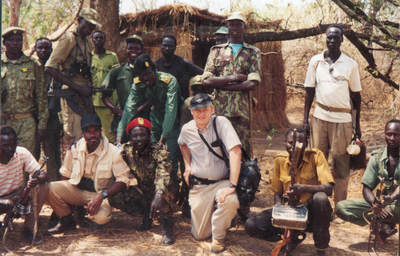
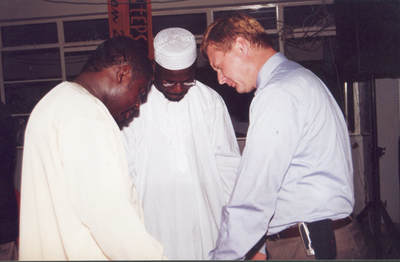
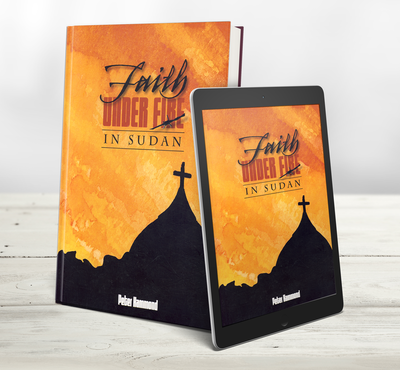
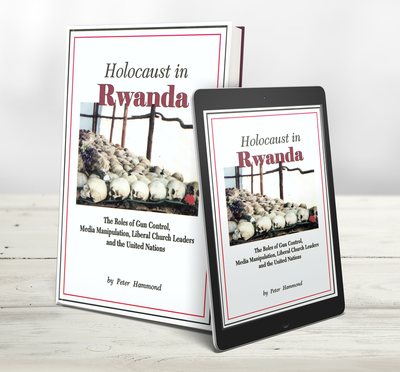
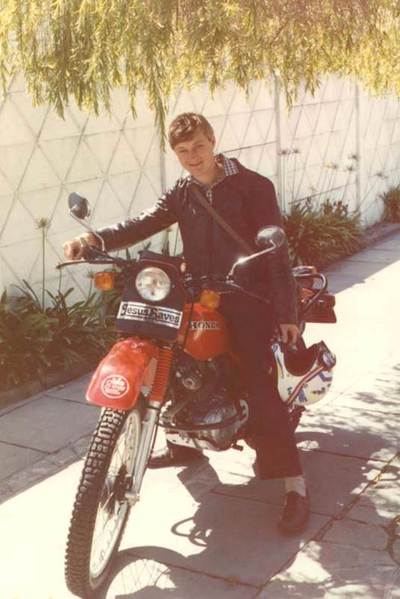
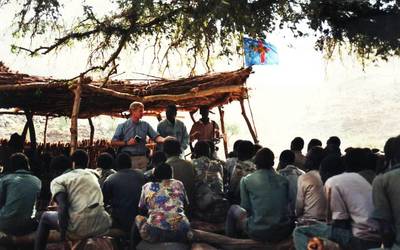
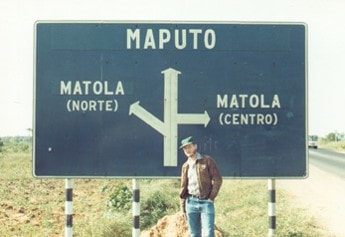
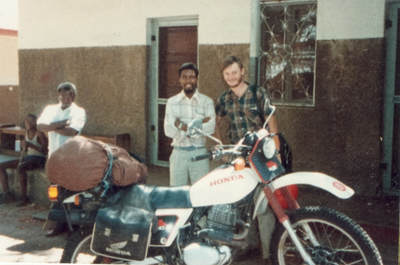
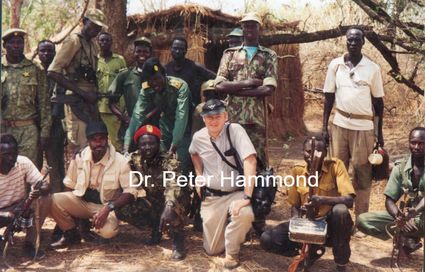
 RSS Feed
RSS Feed
